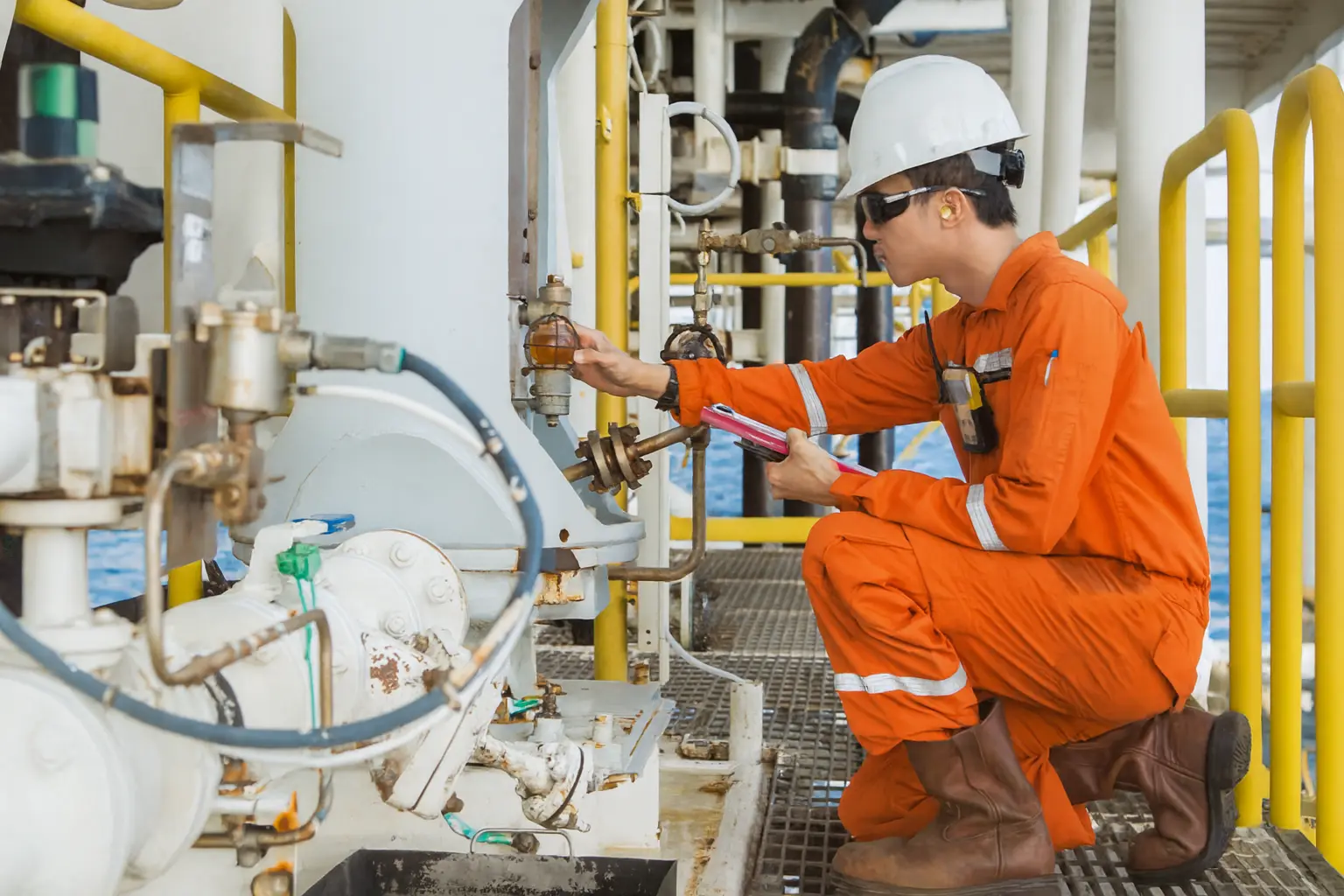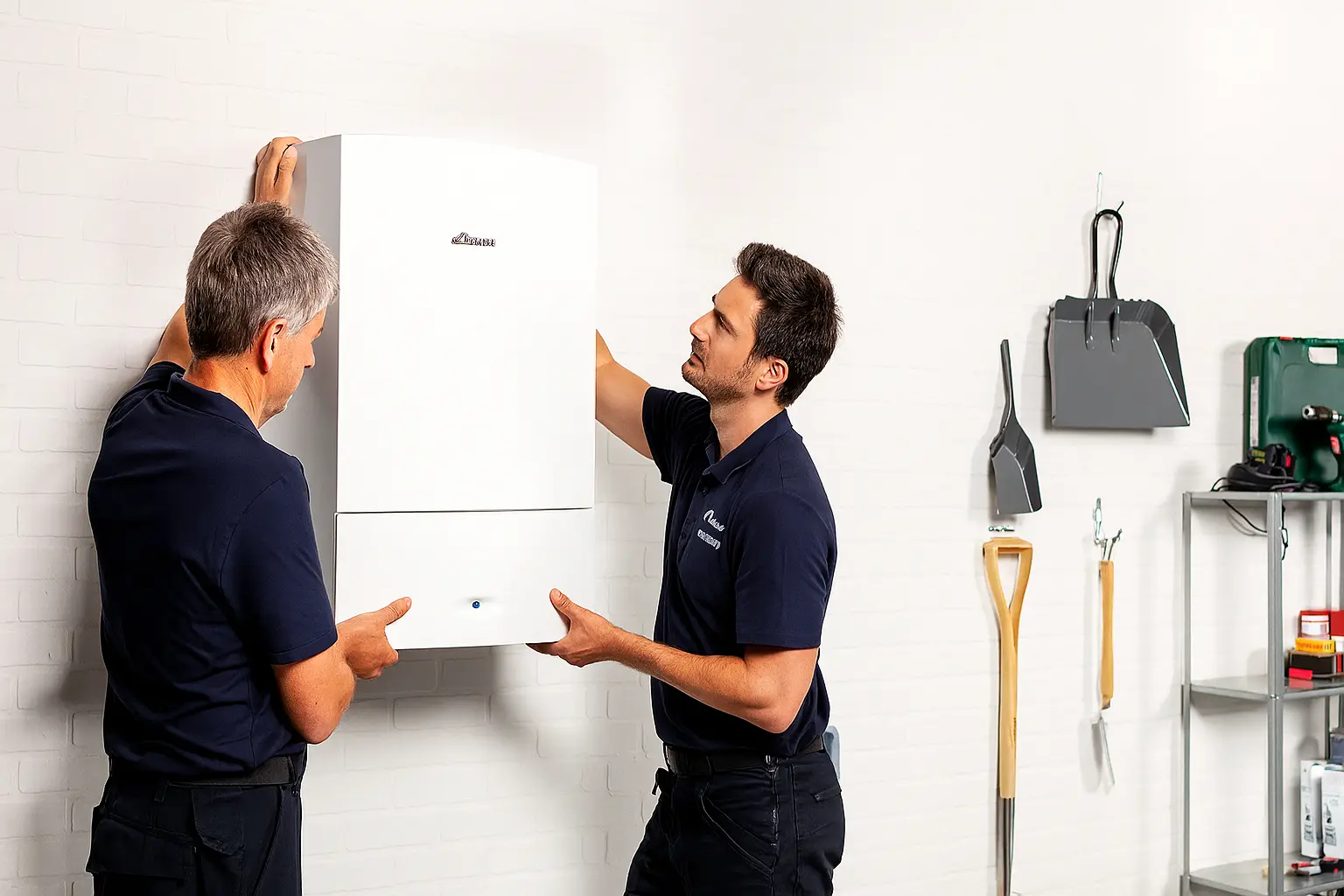Gas engineering contributes significantly to the growth and efficient operation of the sector in that there is safe and efficient supply of natural gas. This is the role of a professional in this area, commonly known as Gas Engineer, who has a keen knowledge of the characteristics of gas and its associated processes and operates under rigid standards and regulations.
These professionals are well-versed in engineering and are extremely familiar with the planning, upkeep, and A1 Plumber optimization of systems that sustain the movement of energy. This field requires technical skills and continuous adjustment according to changes in the industry requirements; hence, it is a fundamental foundation of current energy infrastructure.
What Does a Gas Engineer Do?
The role of a gas safe engineer is extremely significant in the design, construction and maintaining of the infrastructure necessary to carry gas efficiently and safely. This would include the design of systems to ensure the best performance, cost control, and assured safety by many scope adherence to the industry standards and regulations. All of them involving mechanisms, chemical and petroleum systems, end up serving the same purpose; how to extract and distribute gas without any disruption by doing the right thing.
The requirement of analytical thinking, problem-solving skills are needed in daily operations to resolve technological issues. Proper communication among team members will be critical towards the delivery of a project, particularly on complex environments. Its management leads to maintaining systems to be reliable, efficient, and in compliance at every stage of its concept and execution.
Key Responsibilities and Daily Tasks
- A gas safe engineer is employed to work on design, maintenance, and management of production of gas systems.
- Organizes the safe routes of transportation and distribution and makes sure that all equipment works well.
- Follows strict processes to extract and distribute gas efficiently.
- Manages day to day activities such as installation, build up and technical management activities.
- Tests and monitors equipment in order to ensure safety standards during transport and distribution.
- Coordinates smooth installation and construction phases, as well as management of resources.
- Ensures all work meets regulations and supports reliable, safe gas services.
Gas Engineering Domestic vs. Commercial Work
Domestic Work
Domestic gas engineering is concerned with smaller system applications in residential premises. This kind of work is usually done with installation and maintenance of appliances, effective heating and safety checks. The companies can operate on a house-to-house basis in this environment or deal with landlords, offering locally oriented solutions that comply with safety rules of the area. It is usual to work together with consulting specialists or smaller-engineering firms, particularly in the case of unusual property layouts or enhancements of systems. The focus is less complex than in the case of bigger projects, yet accuracy and compliance with regulations is important to ensuring that operations are safe.
Commercial Work
Conversely, commercial gas engineering involves huge systems in commercial premises, public buildings as well as the industrial setting. As a commercial gas engineering, one would typically report to a project lead or a project manager and would be working with, in conjunction with government agencies, large engineering firms, as well as specialist consulting teams. Leadership is required in this area where one needs to handle complicated installations, big project teams, and stringent schedules. Activities in such an industry tend to be more complex by incorporating greater capacity systems, more extensive safety verification and adherence to various regulatory authorities to allow the systems to be operated effectively and safely at all times.
How to Become a Gas Engineer
The knowledge of being a gas engineering commences with the apt background in engineering by attaining a Bachelor degree or even a Masters degree in some instances. A qualified gas engineering course will help in giving the necessary education on working in the field, making one prepared to meet technical demands and safety procedures.
Development of pertinent work experience is also important, since it facilitates career mobility and professional development. Being in possession of valid licenses serves as confirmation of competence and adaption to new methods, technologies, and regulations is made through continuing education. It is necessary to have intense development at every level to achieve strong long-term success in this challenging but fruitful career.
Qualifications and Certifications
Qualifications
The onset of becoming a gas safe engineer is first to ascertain the fundamental requirements that demonstrate technical skill. The essential aspect of being a recognised gas engineer entails a course which is complemented by on the job working to equip the gas engineer to be ready whenever the different situations come about in the field. Obtaining such credentials will make the engineer aware of safety requirements and operating within the industry regulations and every professional expectation.
Certifications
Possession of the right certifications is what is required to manage safe and legal practice. These are evidence that the engineer is a man of strict compliance rules, viable licenses, and professional in the trade. Frequent updates of certifications make skills current and up to date with the current regulations safeguarding the engineer and clients he is working with.
Training Paths and Courses
Training Paths
A gas engineering course can be trained in various directions depending on the career ambitions. Most of them follow the academic route and start the pursuit of a Bachelor of Engineering degree in mechanical and chemical engineering or petroleum engineering with some continuing to a Master of Engineering degree to pursue further development. In addition to the formal education, work experience provided by apprenticeships or site placements is an essential part in developing the ability and becoming a useful professional.
Courses
Other courses are based on learning to become a gas engineer that incorporate the theory with practice. They include safety standards, technical training, and industry practices, which facilitate the possibility of the learners to utilize their experience to real projects. Refresher courses enable continuous improvement of the professionals in line with the current regulations and technologies.
Gas Engineer Jobs and Salary
The need for gas engineering careers is on the rise and it provides diversity in terms of location and sectors. Jobs are promoted in advertisements where talented aspirants are capable of drawing the attention of the recruiters and hiring managers. It has an entry-level and senior position that has its own career development ladder.
The salary scale of a competitive gas engineer is usually affected by experience, location of operation and specialization. The average salaries may exceed the annual national median in areas such as Colorado where markets are demanding in nature. Submission of a professional resume highlighting achievements and relevant expertise can enhance the chances tremendously in this upcoming sector.
Career Options and Job Outlook
Career Options
Gas engineering occupations are of interest to various sectors, multiplying the number of opportunities in the industries, households, and the business realms. They can work at one of the private companies, engineering firms, or specialist consulting services and can work in the state according to the requirements. The occupation enables workers to tackle installation work, repair and maintenance, which constitute variety and stability.
Job Outlook
Prospects in the job market are great in this career and there is a clear progression in taking up managerial levels of projects like project manager or attainment of leadership positions in large organisations. Most existing engineers also venture into consultancy where the engineers consult companies and firms on complicated technical ventures. With the current changes in the enhancement of safety and modernisation of infrastructure in industries, skilled engineers are bound to be in high demand.
Average Salaries and Earning Potential
Average Salaries
Prospects in the job market are great in this career and there is a clear progression in taking up managerial levels of projects like project manager or attainment of leadership positions in large organisations. Most existing engineers also venture into consultancy where the engineers consult companies and firms on complicated technical ventures. With the current changes in the enhancement of safety and modernisation of infrastructure in industries, skilled engineers are bound to be in high demand.
Earning Potential
Looking at the earning potential, the chances increase with the gain of experience. The highest annual incomes, including those of overtime, bonuses, and allowances, may be meant by senior jobs, specialist, and business offerings, and commercial contracts. The most reliable way of ensuring the best gas engineer salary in any state is to constantly upgrade skills and make the necessary adjustments to the industry demands.
Specialisations in Gas Engineering
Other prominent roles in the industry include the commercial gas engineer and the emergency gas engineering with each providing isolated career opportunities in the profession. A commercial expert mainly works with an extensive operation, and he controls the work that needs to be approached carefully, with a lot of specificity and with a high level of attention to someone, especially to someone who he or she is serving. This is work with sophisticated developments and intense technical responsibility.
Contrarily, an emergency job pertains more to emergencies and safety and swift action is critical. Being able to manage risk successfully, being able to work with serious compliance procedures and getting out of trouble under pressure are features of this area. The two specialisations play useful roles in ensuring quality gas services in different settings.
Commercial Gas Engineer
A commercial gas engineer has access to bigger systems with commercial buildings, industrial plants, and the services of the public being some of the areas where they work. These jobs usually require the maintenance of boilers, the heating systems, and gas-powered devices in firms, engineering businesses and governmental organizations. Employment has to do with rational organization of business processes, adhering to all safety regulations, and flawless records of each task.
Projects could also be managed on behalf of specialist consulting teams or large corporate customers in most instances where control of risk is paramount. In either performing maintenance, installations or inspection tasks, a commercial gas engineering makes sure that systems are in line with the law and working successfully to ensure businesses, and publicly-autonomous facilities operate smoothly.
Emergency Gas Engineer Services
The emergency gas engineering is an important person whose work is sensitive in addressing any urgent situation regarding the gas that is of immediate danger to individuals or a building. The scenarios usually concern identification of leaks, effects critical repairs, or construction of a system safe enough to allow a complete repair process. All the activities should be carried out in line with stringent safety measures to guard against accidents, environmental safety and the integrity of the system. Rapid response, accurate fault detection and problem: communication are the main ingredients of safety in tense situations.
Along with the urgent fixations, an emergency gas engineer is directly involved in the maintenance in order to minimize the possibility of such breakdown in the future. These involve reviews, checks of compliance by the individual, all work should be viewed in accordance to the need of legality. These professionals contribute to the safety and steadfast gas infrastructure by malice of both imminent risks and future wellbeing of the structure immersing in any location.
Tools and Technology for Gas Engineer
It is known that modern practice is frequently based on highly developed equipment and accuracy of the tools that are used to maintain efficient and safe process. Management with the help of gas engineering software has changed the -it is more systematized, facilitates communication and helps to keep the correct records. Whether it is a diagnostic device that allows finding faults within a short period to aids that improve accuracy during installation, each tool is essential in providing high-quality service.
By adopting the use of the latest technology, tasks will be accomplished more quickly and in a more dependable manner. Intervention of the digital systems into everyday practice guarantees stable functioning and facilitates the chance to keep up with the industry standards without hesitation.
Job Management and Gas Engineer Software
Job Management
Job management is essential in order to maintain order within the day-to-day schedule, monitoring, and communication between the teams. It is concerned with the scheduling in case projects are done in time and safety and quality measures are considered. Proper management prevents delays, manages the costs, and enhances efficiency in general in the field.
Gas Engineer Software
Gas engineer software facilitates these objectives by providing easy to use scheduling tools, real-time updates and effective communication channels. It can also facilitate such processes as documentation and compliance thus it is easy to ensure the management of certificates and reports. Collectively, they help the engineers to be effective and at the same time satisfy the requirements of the industry.
Essential Tools for Safety and Efficiency
In order to work efficiently a gas engineering depends on the precise equipment that has been constructed to be precise, long-lasting and trustworthy. Starting with the accuracy diagnostic equipment determining faults to those that are used to facilitate easy installation, they all contribute to the safety and the fluidity of operations. In big building projects, special equipment can make the processes go smoother and every step can follow the comprehensive regulations of compliance.
Physical equipment is as useful as software, however. It assists in the monitoring of maintenance schedules, documentation of safety inspections and inspection of workflow in its entirety. The optimal style of combining well-selected equipment and clever digital solutions allows gas engineers to work with greater efficiency, provided that all the tasks are carried out on the highest level of safety and compliance.
Legal and Safety Requirements
- A gas safe engineer should observe a high standard of safety and make sure that all related rules and standards are complied with.
- The legal requirements on work needs proper documentation and correct record-keeping to be proved.
- Holding valid licenses confirms the engineer is qualified to perform the work.
- Regular audits help maintain high standards and identify any issues.
- Awareness of environmental concerns is important for safe and responsible work.
- Following company policies protects people and property during gas engineering tasks.
Gas Safe Registration and Compliance
Working safely and legally with gas appliances involves ensuring a gas safe engineer is registered properly; Gas Safe registration accepts and fulfils the standards within this industry area. This enrollment means that all labor will be of high standards and be as per the regulations as stipulated by the government that are meant to ensure protection of the workers as well as customers. In possession of the right licenses, one can confirm that the engineer is qualified and trained, and proper record keeping is important in indicating a continued adherence to the safety regulations.
Any gas work should not be conducted without adequate registration and this can cause considerable safety risks. The Gas Safe registration system helps establish confidence in the profession because it ensures that work on gas installations and repairs is carried out only by competent engineers, which makes houses and companies safe. Connect with Artbees on Facebook for updates and insights.
Customer Safety and Record-Keeping
The safety and the paramount adherence to principles of the industry should be of primary concern to a gas safe engineer as a means to secure property and the clients. Record-keepings and religion documentation of every single work done is the proper way of ensuring transparency, and thus it will lead to a growth of trust between the engineer and the client. Good communication regarding the status of the gas systems, repair, and maintenance facilitates continuity of safety and enlightens clients on precaution required.
Keeping complete records also helps to conform to the legal regulations and gives evidence of conducted checks or repairs. Such a detailed process of documented work and contact with clients is critical to minimizing the risks and making sure that every gas-related service adheres to the safest standards.
Conclusion
The profession of gas engineering requires solid expertise in safety, compliance regulations, and technical functions in the gas engineering profession. It is vital to keep up with the industry standards, and possessing the relevant licenses and proper documentation is essential in becoming successful. The even growth and significant responsibility, with a variety of opportunities both in a commercial and emergency position, make this profession interesting and full of opportunities. For inquiries or service requests, contact A1 Plumber.
FAQs
What’s the difference between a gas engineer and a plumber?
A gas engineering specializes in installing, maintaining, and repairing gas systems safely, following strict regulations. A plumber focuses mainly on water pipes, drainage, and sanitation but may also handle some basic gas-related tasks.
Can I work without Gas Safe registration?
No, working without Gas Safe registration is illegal and unsafe. Only registered engineers are certified to handle gas appliances and ensure compliance with safety standards.
How long does it take to qualify?
It typically takes around 1 to 2 years to qualify as a gas engineering through a recognized course and training. Gaining practical experience alongside qualifications is also essential for full certification.



